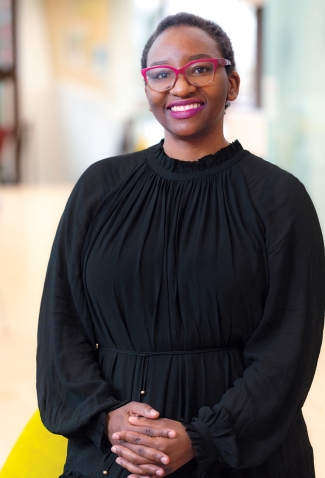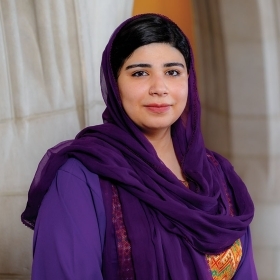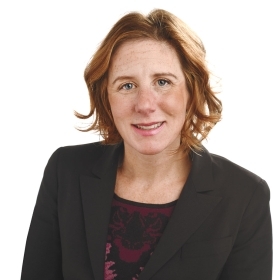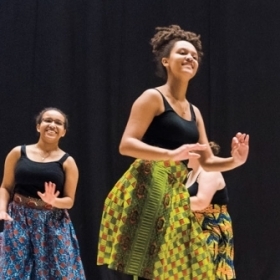Photo by Lisa Abitbol
Faculty are accustomed to late-night missives from students with urgent appeals about grades and deadlines, extensions and office hours, so it came as a bit of a surprise to Chipo Dendere, assistant professor of Africana studies, to hear from a student late one night last winter who just wanted to say “thank you.”
“This email is a bit out of the blue,” the message began. The student, who had taken Dendere’s Introduction to African Politics course nearly a year earlier, went on to describe the “profound impact” it had had on her. “The African Politics course is my favorite class I have taken at Wellesley to date,” she wrote. “It absolutely changed the way I look at aid.”
“I was so happy,” Dendere says, recalling the exchange. In the course, which she taught again last fall, she works hard to challenge her students’ assumptions about Africa. “The one thing I hear most from students is this idea that you can learn about Africa for the sake of learning about Africa, and not because it’s tangential to something else.”
At the very least, she has explained, by the end of the semester, they should understand that Africa is not a country. (In fact, it includes 54 countries, and nearly 1.4 billion people.) “Students come to me, never having learned anything about the continent or having learned only about genocide or war—things that are also true, but not the only story about the continent. It was really nice for me to hear from her and others that they really got that lesson,” she says.
Dendere, who joined the College in 2019, attributes her passion for political science to her youth in Zimbabwe—where she grew up under a single political leader, President Robert Mugabe—and to her early experiences in the United States. After arriving in Oregon as an undergraduate in 2004, she immersed herself in her new political landscape: She was elected student government president, volunteered with both the Clinton and Obama presidential campaigns, and worked for her senator on Capitol Hill, where she helped prepare for the 2009 visit by Zimbabwean opposition leader and newly elected Prime Minister Morgan Tsvangirai.
Her research interests, which grew out of her doctoral work at Georgia State University, focus on the psychology of politics. “How people think, how people feel, shapes the way they participate in politics,” she says.
Dendere is also a prominent public intellectual on the politics of the continent, providing commentary for the Washington Post, CNN, Al Jazeera, and Voice of America, among others. And in what must have felt like a very full-circle moment, she returned to Capitol Hill in 2018, a decade after having first arrived as a young staffer, but this time, she was there to provide expert testimony to Congress about the coup d’état that had just ousted Mugabe after 30 years as head of state.
Dendere gives a map quiz at the beginning and end of the semester to demonstrate to her students how much their understanding of the African continent has grown. “We start off the semester with people knowing one or two African countries,” she says. “At the end of it I’ve got students identifying the country, the capital city, and sometimes major rivers. I’ve even had people draw the map themselves, which is a little extra because even I can’t do that.”








We ask that those who engage in Wellesley magazine's online community act with honesty, integrity, and respect. (Remember the honor code, alums?) We reserve the right to remove comments by impersonators or comments that are not civil and relevant to the subject at hand. By posting here, you are permitting Wellesley magazine to edit and republish your comment in all media. Please remember that all posts are public.